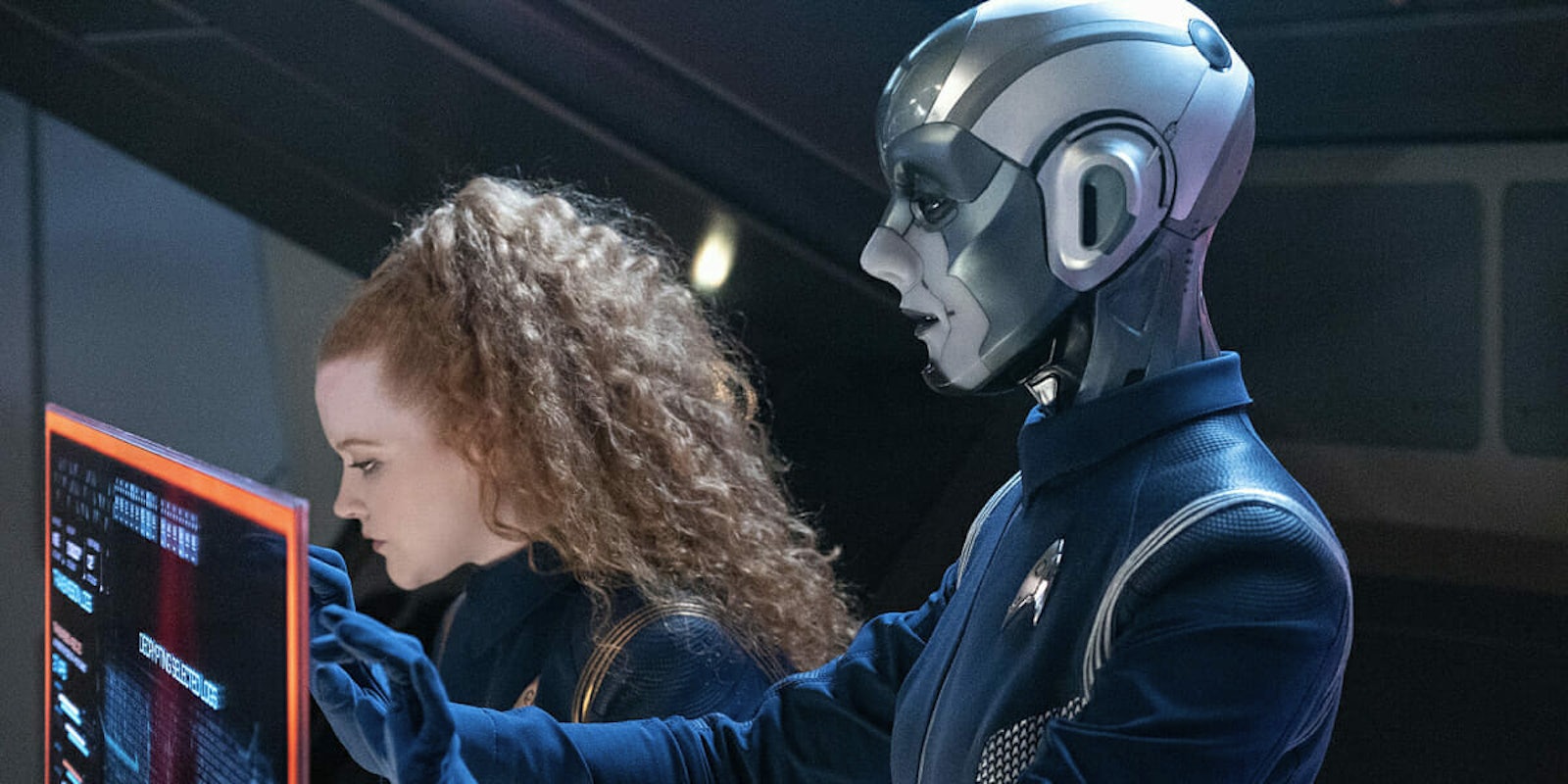This recap includes spoilers for Star Trek: Discovery episode 2×09, “Project Daedalus.” For previous recaps, click here.
We now have an explanation for the Red Angel’s vision of an apocalyptic future, but really, this episode was all about feelings. While Spock and Michael hashed out their bitter sibling feud, the show also delved into Airiam’s life and backstory—and what happened when that robotic tentacle hacked her cybernetic implants.
Last week: Star Trek: Discovery explores Spock and Michael’s troubled past
I mentioned a few weeks ago that Discovery has a very different casting structure from previous Star Treks. Instead of relying on a core cast plus weekly guest stars, there are far more recurring characters like Spock and Georgiou, along with a crowd of second-tier Starfleet officers. Following the expanded roles for helmswomen Detmer and Owosekun, this episode focused on the cyborg lieutenant Airiam, who is secretly being forced to sabotage the ship. When Admiral Cornwell comes onboard to help infiltrate Section 31 headquarters, we finally find out why.
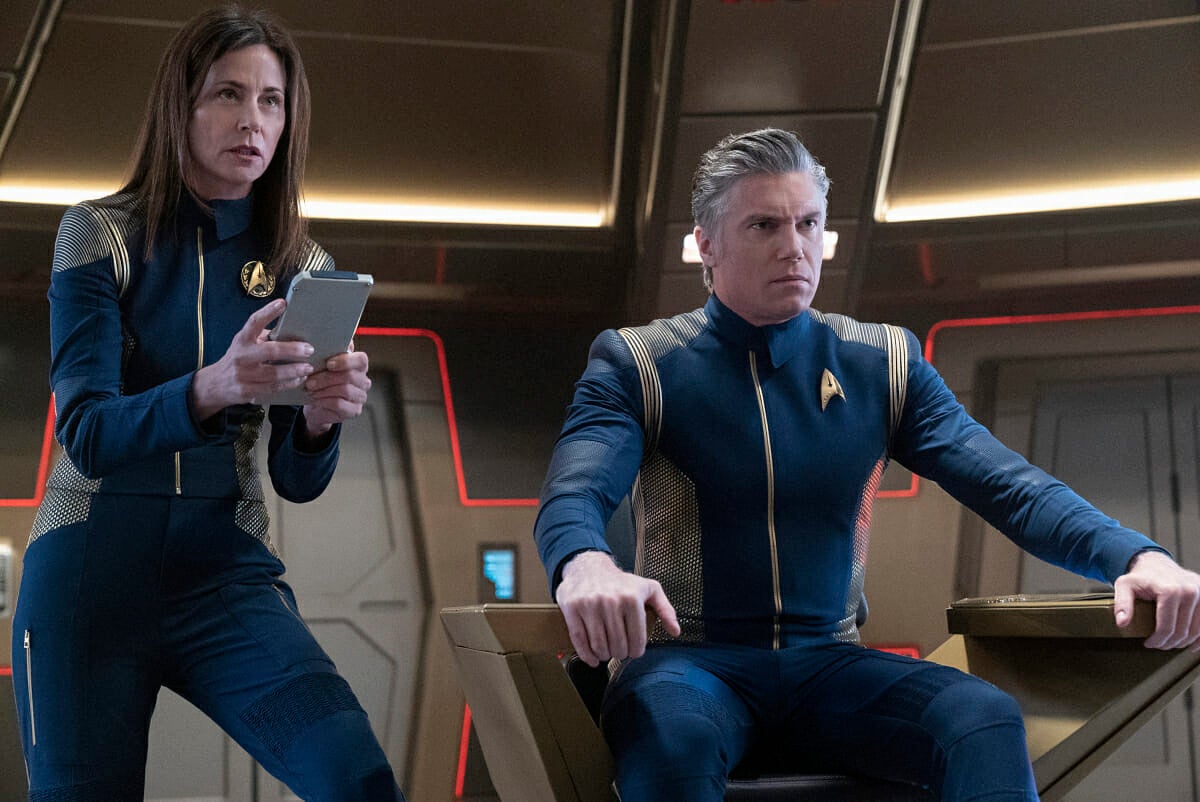
Discovery got a lot of press for being the first Star Trek show with a Black female lead, but that’s only one facet of its inclusive nature. It’s also quietly maintained a diverse cast and crew for the past two seasons, a detail that often gets overlooked in favor of geeky arguments about vintage canon. In particular, I’ve noticed that without much fanfare, season 2 gives much more screen time to women.
It took until halfway through this episode for me to realize just how many women were involved: Michael and Airiam in the lead, plus Airiam’s friendship with Tilly, Owosekun and Detmer, guest roles for Admiral Cornwell and the Vulcan Admiral Patar, and security officer Nhan joining Michael and Airiam for an away mission. (Directed by Next Generation star Jonathan Frakes, the episode was written by Discovery’s new showrunner, Michelle Paradise.) The only men with key roles were Pike, Spock, and Stamets—a reversal of the gender ratio we saw in classic Trek. It feels a little mathematical to set it out like this, but it’s nice to realize that these casting choices now feel totally normal.
Inside Section 31
Previously representing the Starfleet establishment, Admiral Cornwell was a surprise ally this week. Despite the U.S.S. Discovery’s newfound fugitive status, she joined them for a secret mission: infiltrating the headquarters of Section 31, Starfleet’s morally dubious spy organization. It’s home to a supercomputer called Control, which Starfleet relies on for tactical advice. Cornwell hasn’t been able to contact Control for weeks, so there’s clearly something fishy going on, and it may have something to do with Section 31 framing Spock for murder.
There’s a lot going on here, to put it mildly. I found it hard to care about Cornwell’s mission to reset Control, but that didn’t really matter because the main focus was on relationships: Spock and Michael, and Airiam being forced to betray her loyalty to the crew.
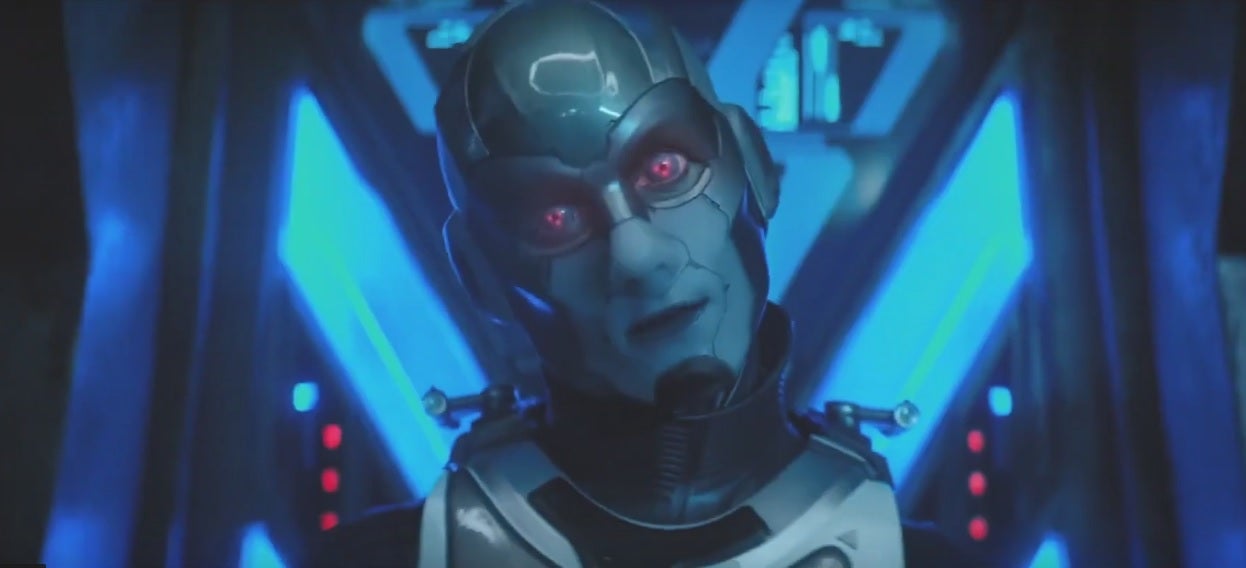
After a lot of speculation, we now know that Airiam is a human woman who had extensive cyborg implants after surviving a shuttle crash that killed her husband. Along with full-body enhancements, her memories are now stored like a computer, and we see her doing a weekly edit of which files to keep (ie. moments with her friends) and which to dump. She seemingly has no idea her brain has been hacked by a malevolent entity, except for a tense moment on the bridge when she asks Tilly to check her work, hoping her friend will notice something’s wrong.
While Detmer steers the ship through the minefield around Section 31, Airiam secretly undermines Cornwell’s investigation. Unfortunately, no one onboard has any reason to suspect her, since they all assume that Tyler (an automatically suspicious figure) was the one sending secret transmissions to Control. The mines only stop attacking when Discovery’s engines are conveniently disabled, leaving Michael, Airiam, and Nhan to beam down and find that Section 31 is a ghost town. In fact, there’s literally a ghost in the machine.
Earlier on, Discovery received an unpleasant message from the Vulcan extremist Admiral Patar, but Michael finds her body on the space station. Patar has been dead for two weeks, and the message was a hologram fake, as was the security footage of Spock killing those hospital guards.
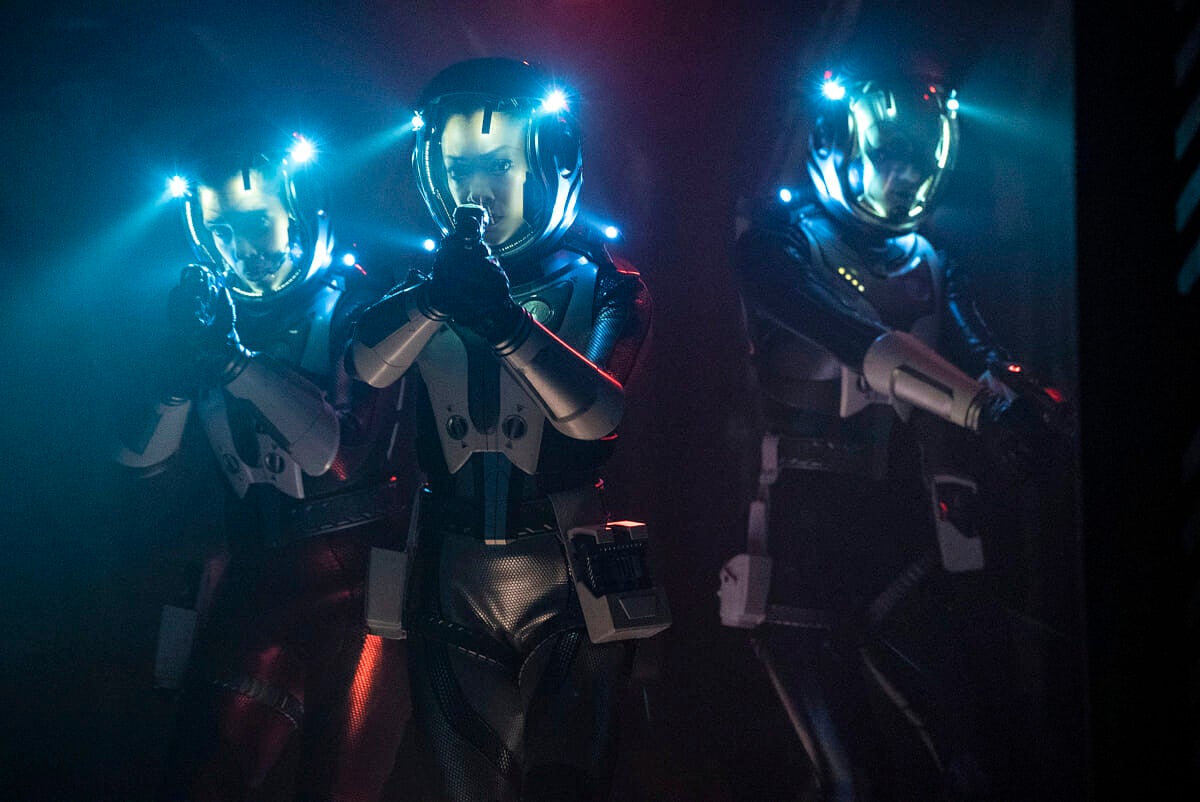
Curiouser and curiouser, as Spock and Michael’s favorite book would say. Something lured Discovery to Section 31, and that’s when Airiam finally shows her true colors. She’s a pawn of that alien database planet we saw in episode 4, and if she manages to upload its knowledge to Control, she’ll create a super-intelligent being that causes the apocalypse from the Red Angel’s vision. Phew.
Tilly buys some time by sharing beloved memory files with Airiam, but Airiam’s body is still under Control’s, uh, control. Desperately, she begs Michael to shoot her out the airlock, something that Michael just can’t bring herself to do. Like James Kirk, Michael doesn’t believe in no-win scenarios. And after watching her parents die while trapped helplessly behind a locked door, she’s determined not to repeat the past. Even Pike, the moral heart of the show, sees the necessity of Airiam’s death, but Michael is so frozen by indecision that Nhan has to step in, hitting the airlock button at the last moment. Airiam dies, and now the crew is in limbo: Did they stop Control in time? And what is Project Daedalus, Airiam’s last words to Michael?
Spock’s troubled youth
Getting a hold on Discovery‘s elaborate plot is like trying to free-climb on an ice wall. I’d probably ignore whole Red Angel/Control storyline if I wasn’t being paid to pay attention, but luckily there were a lot of great character moments this week. “Project Daedalus” had a good balance between sci-fi thrills and interpersonal drama, especially this key revelation about Spock and Michael: Like many sibling rivalries, the problem is how much they have in common.
After a massive argument over a game of chess, Spock accuses Michael of being being self-absorbed. He points out (in the most hurtful way possible) that it’s ridiculous for her to take the blame for her parents’ murder, or for Vulcan extremists targeting Spock’s family. He’s right, but he’s also a hypocrite. He’s spent the whole season trying to handle the Red Angel apocalypse by himself, putting the weight of the universe on his own shoulders.
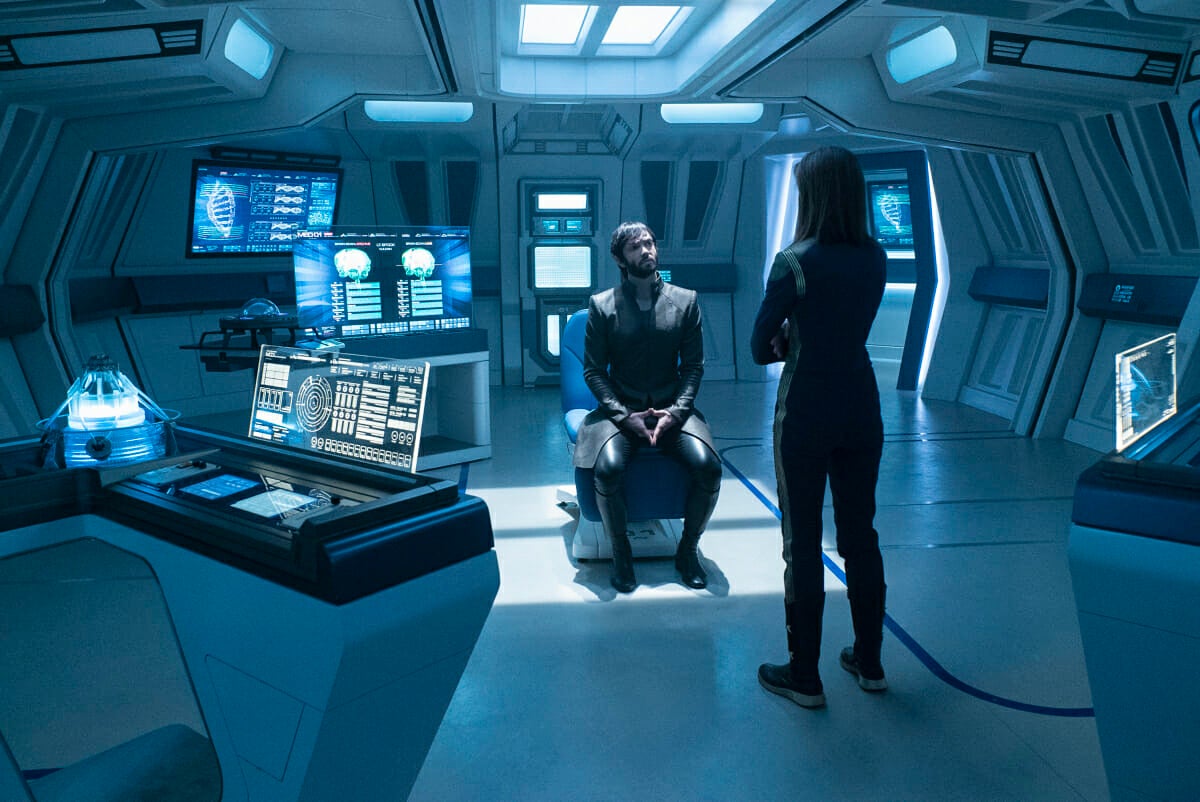
Young Spock’s portrayal will be divisive, but I’ve decided I’m into what Discovery’s done with the character. He may be more emotional than the original Spock, but Ethan Peck retains enough of Leonard Nimoy’s mannerisms (for instance, the soft way he pronounces the letter T) to connect old and new. There’s also the fact that this Spock isn’t actually in touch with his emotions—he’s just a mess. During his fight with Michael, he smashes her chess set and claims that he’s “enjoying” his emotions for the first time, which is blatantly false because he’s miserable and out of control. However, it does make sense for a stressed twenty-something who wants to rebel against his controlling father and finds his sister unbearably annoying.
Spock’s cruelty and smugness are believable because they’re only aimed at Michael, whose presence is tangled up in his childhood trauma. His tone is very different when he gets a moment alone with (of all people) Stamets. When Stamets asks him to help rewire some gadget, we expect Spock to be a dick, because that’s all we’ve seen him do with Michael. But Stamets is a neutral party, and Spock isn’t just helpful toward him—he’s nice. Mentioning that he saw Culber moving out of Stamets’ quarters, he shares some insight that Stamets didn’t consider himself – maybe because Discovery doesn’t have a damn therapist onboard. Spock points out that Culber’s feelings toward Stamets may not be the issue. It’s more about Culber’s conflicted feelings toward himself, an idea that Spock clearly finds familiar.
For more Star Trek: Discovery recaps, click here.

